MercoPress. South Atlantic News Agency
Tag: Parana River
-
Tuesday, November 18th 2025 - 10:34 UTC
Argentina launches “Paraná Plan” to target Waterway crime

The Argentine Government has launched the “Paraná Plan,” a major interagency initiative designed to curb federal crimes and reinforce border security along the Paraná-Paraguay Waterway, a vital trade route increasingly exploited by transnational criminal organizations.
-
Tuesday, December 10th 2024 - 09:17 UTC
State of water shortage declared in five major rivers in Brazil
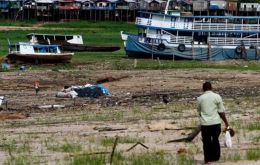
Brazilian authorities Monday decreed a “state of water shortage” in the basins of five major rivers nationwide. The critical situation affects some 2,264 million km², it was explained. It was the first time in over 100 gauging these water levels that such an extreme measure has been adopted.
-
Saturday, August 3rd 2024 - 09:40 UTC
Argentina decrees 63% hike on Paraná-Paraguay Waterway tolls
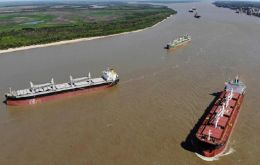
The Argentine administration of President Javier Milei decreed a 63% hike in the tolls collected from barges sailing through the Paraguay-Paraná Waterway effective this month. The adjustment set a new price of US$ 4.98 (from the previous US$ 3.06) per Net Register Ton (NRT). The figure is projected to reach US$ 6.04 per TRN in 2027.
-
Tuesday, June 25th 2024 - 10:28 UTC
Paraguay's shipping business needs Paraná River dredged as soon as possible

Paraguay's Congress will be asked to declare a hydrological emergency in the Paraná River to speed up dredging after members of the Paraná Joint Commission (Comip) discussed the hydro-climatological last week and agreed on the next actions, Merchant Marine Director Patricio Ortega explained in Asunción.
-
Tuesday, June 18th 2024 - 11:41 UTC
Paraguay consolidating as the world's third exporter of soybeans

Paraguayan exports of soybeans are gaining steam, according to shipment data provided by Marine Link. Farmers are accelerating sales due to a stronger global market and higher prices for the oil seed.
-
Tuesday, May 7th 2024 - 18:57 UTC
Paraguay: Waterway master plan called for amid discouraging weather forecast
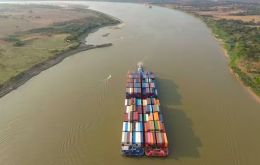
Water levels below average at the Paraná-Paraguay river waterway have traders concerned over the future of their business. However, there seems to be consensus on the need to develop a master plan to tackle the grim situation stemming from discouraging precipitation forecasts despite abundant rainfall in recent weeks.
-
Wednesday, March 13th 2024 - 06:55 UTC
New private port for grains trade along the Paraná
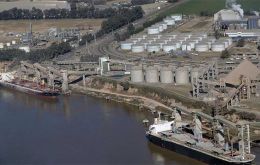
The administration of Argentine president Javier Milei announced last week plans for a US$550 million investment to build a new port in the Rosario region, the country's major grains and oilseeds hub.
-
Saturday, February 3rd 2024 - 10:34 UTC
Paraná River: Traffic restored after ship is freed from bridge pillar

The Liberian-flagged freighter En May was removed on Friday from one of the pillars of the Zárate-Brazo Largo bridge that connects the Argentine provinces of Buenos Aires and Entre Ríos, where she got stuck after losing her steering capabilities last Sunday. Full navigation was thus restored on the Paraná River waterway.
-
Wednesday, November 29th 2023 - 14:19 UTC
US grain exports threatened by insufficient draft along the Mississippi for barges
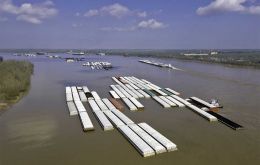
As has happened with the mighty Paraná River in the heartland of South America, with the Amazon in northern South America, and even with the Panama Canal, all of them suffering lack of rainfall to keep basins flowing with sufficient water levels, now has come the turn of the Mississippi with insufficient draft for the vessels and barges involved in transporting US grains.
-
Thursday, September 28th 2023 - 08:46 UTC
Paraguayan Navy sailor wounded in clash with Argentine Coast Guard
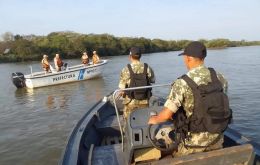
A Paraguayan naval officer and two civilians were arrested Wednesday by the Argentine Coast Guard (PNA) following an incident at around 3 pm in the Paraná River near the PNA's Puerto Maní (Misiones) delegation that resulted in the seizure of a Paraguayan Navy vessel allegedly trying to smuggle fuel to the Paraguayan side.
